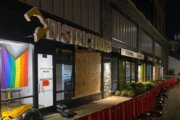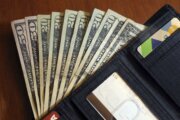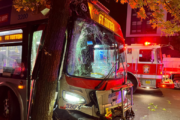AIDA CERKEZ
Associated Press
SARAJEVO, Bosnia-Herzegovina (AP) — Preliminary results presented by election officials on Monday indicate that parties that ruled Bosnia over the past four years marked by economic stagnation and social unrest have been punished by voters in the general election.
Still, it remains unclear if any change is forthcoming since the composition of the ruling structures at the many different levels of government will likely depend on complex coalition negotiations.
The results from Sunday’s election indicate that although concerned about the 44 percent unemployment rate, Bosnians remain mired in wartime nationalist divisions. All three groups in Bosnia — Bosniacs, Croats and Serbs — tend to vote along sectarian lines.
According to some 80 percent of the ballots counted, Bosniacs — the largest group — elected their national Party of Democratic Action over the mixed Social Democrats, which had received most of their votes four years ago.
The country’s Croats remained loyal to their nationalist party, the Croat Democratic Union. The Serbs seemed equally divided between two nationalist options: the hardline party of Milorad Dodik and his milder opponents from a coalition led by the Serb Democratic Party, which was established by the Serb wartime leader Radovan Karadzic. He is now on trial before a U.N. war crimes tribunal.
For more than two decades Bosnia’s three groups have quarreled over what their country should look like, and the dispute continues over whether Bosnia’s territory should be divided among the three or remain unified and mixed.
Their 1992-95 war over this dilemma ended with a compromise that divided the country in two self-administering regions — one for the Serbs, the other shared by Bosniacs and Croats. The latter is further divided in 10 cantons. Everything is tied together by a central government.
In this complex political setup, Bosnians were choosing a three-member state presidency and a parliament. Voters in the Serb half voted for a president and a parliament of Republika Srpska. Voters in the Bosniac-Croat half chose lawmakers for their regional parliament and for parliaments of their 10 cantons.
Bakir Izetbegovic, the unofficial leader of the Party for Democratic Action, will continue to occupy the Bosniac seat in the three-member presidency, and his party won more seats in the state parliament that was previously dominated by the Social Democrats.
Dragan Covic from the Croat Democratic Union, which seeks to split the Bosniac and Croat federation, is far ahead in the race for the Croat seat in the presidency and his party maintained its seats in the parliament.
The ruling Serb party of Milorad Dodik appears to have lost the Serb seat in the presidency to a Serb opposition leader, Mladen Ivanic, but it remains the strongest single party in the parliament of the Serb region. However, a united opposition could take away that domination.
Dodik, who had nearly absolute power as president of his Serb region, was just 11,000 votes ahead of his opponent, with 15 percent more votes to be counted. Dodik based his campaign on promises of Serb secession and Russian support for it, while his opponents focused on the wrecked economy and poverty.
“I must say I am sad because of this result,” Dodik said Monday after his party lost the Serb seat for the state presidency. He said he could not believe Serbs voted for Ivanic who enjoys the support of Bosniacs and the West.
___
Sabina Niksic contributed to this report.
Copyright 2014 The Associated Press. All rights reserved. This material may not be published, broadcast, rewritten or redistributed.







